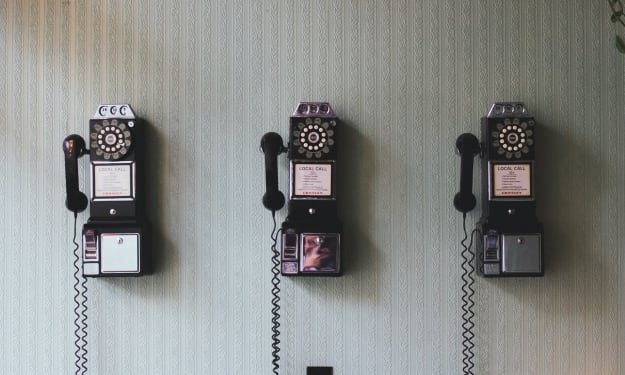
Criticism is essential to personal progress. This is the most straightforward way to figure out what you should improve. However, taking criticism can be emotionally challenging. After all, we're only human, and who wants to hear bad things about ourselves?
It's hard not to accept it. Our instinctive reaction is to become defensive and we reject techniques that might be useful and improve our lives. By doing so, we miss out on things that could enhance our improvement.
So how do you accept criticism without being conscious and defensive?
A: The most effective way to accept criticism is to externalize it.
When you externalize criticism, you get out of the defensive trap. You are no longer self-aware and accept criticism objectively, which allows you to benefit from the helpful hints contained in the criticism.
The criticism is not directed at you personally, but at any writer, artist, worker, developer (or anyone else you get feedback from) who happens to have the same name as you. When you accept criticism objectively, your initial defensiveness disappears simply because you stop taking it personally.
Externalizing criticism allows you to extract useful hints from the most critical feedback. You take what's meaningful to you and discard the rest. You don't risk becoming defensive or even feeling bad or self-conscious.
Externalizing criticism can also prevent bad and unhelpful criticism. It doesn't matter how much or what kind of comments and criticism you get: you look at it objectively. You can take away the things that mean something to you and throw the rest away.
When you externalize criticism, you can easily take it and use it to enhance your personal progress.
5 Steps to Taking Criticism Effectively
Are you ready to increase your acceptance of criticism? good
Next time you ask for feedback, follow these five steps to externalize criticism:
Wait for your gut reaction to pass before doing anything - let your emotions die down so you don't take criticism personally and become defensive
Imagine that the criticism is directed at someone else -- someone who happens to have your name and does what you do
Keep your mouth shut -- listen, don't defend
Discuss the other person's point of view - asking questions will a) help you get more helpful hints from them, and b) externalize the criticism more (so you see it more objectively)
Rinse and repeat each time you receive feedback until externalizing criticism becomes a habit.
(Reward) How to take Criticism more effectively:
Confidence - Believe in what you're doing so that even the most critical comments won't sway you in your direction
Have a clear goal for what you're doing -- so when you ask for feedback, you can take criticism to improve on key areas, rather than letting someone else dictate the direction and get lost
Why is it so hard to accept criticism
The reason we become defensive in the face of criticism is because we are connected to the self. So when someone suggests how we can improve, that person is indirectly admitting that we are not good at something. Our egos get hurt.
As Leon F. Seltzer, Ph.D., explains in his Psychology Today article, why criticism is so hard to take:
Criticism, even well-meaning criticism, can be understood as a direct attack on our ego. When we (however unconsciously) associate ourselves with selves or opinions, we cannot fail to experience ourselves at risk whenever our opinions are questioned, disbelieved, or disputed - our mental and emotional balance is immediately abandoned into imbalance."
Even if it is made clear that the criticism is not a criticism but a demonstration of how to improve, you will naturally have to defend yourself. When you go into defensive mode, you don't get the real skills from the criticism that will help you improve.
So separate yourself from yourself -- at least when you're being criticized. Externalize criticism so that you can look at it objectively and not as a criticism of yourself (and your ego).
My experience in criticism
I used to be so defensive and self-conscious when I took criticism. But I was able to overcome these problems - now I automatically externalize criticism almost as soon as I hear it.
In fact, I have friends and acquaintances who comment on how I take their criticism. I'm not trying to brag, but to show that a person who accepts criticism in a supramental way can escape the defensive trap and accept criticism objectively. This helped me gather useful tips and enhance my personal progress.
While accepting criticism was an insurmountable challenge for me, I kept making the same mistake: I convinced myself that I could take it. I ask people not to hide their feedback. But as soon as the criticism starts, I jump to the defense.
My gut reaction is to take the criticism personally. It is, after all, a natural human reaction.
However, I knew something needed to change. I missed out on valuable suggestions for personal improvement. I see how well certain people take the criticism I give them. How do they do it? I began to pay attention.
The first thing I noticed was that they started discussing criticism with me almost immediately. They weren't interested in convincing me why they did something - they weren't trying to justify anything. Instead, they were interested in what I could suggest for improvement. They asked me questions to clarify or further elaborate on what I had said.
It's like we're not even talking about them, but about someone else.
And that's when it hit me: they externalize criticism.
They don't take it personally. They externalize my criticism so they can look at it objectively and get something meaningful out of what I'm saying.
So I started training myself to externalize criticism. There's no secret: practice every time I ask for criticism.
I ask for feedback and then force myself away from criticism. It was hard at first... Well, I failed miserably. But it gets easier every time. Bit by bit, defensiveness begins to fade earlier and earlier in the criticism process. I personally accept it less and less.
After a few weeks, I learned almost immediately to disconnect from criticism. The instinctive defensive response disappeared as soon as it appeared. I don't seize on criticism emotionally. It's like being startled: it's just a physical reaction, and it's gone as soon as it's there.
With the personal connection and emotion to criticism gone, I was able to look objectively at criticism and how to improve myself. It's like I'm looking at someone else who happens to share my name.
Over the next few months, I kept doing the same thing to solidify the externalization of criticism. In those months, externalizing criticism became a habit.
Now, I don't have to think about it -- externalizing criticism comes naturally.
I've trained myself to externalize criticism in the first few seconds. So it's not about me, it's about an artist named Oleg Mokhov. Then I can look at the criticism objectively without feeling emotional. I choose the parts that are meaningful to me, and it's easy to ignore the rest.
In addition to externalizing criticism, I also trained myself to shut up. Easier on yourself and others.
Unless I really need them to know something, it's not worth the time and effort to defend or convince them. My resources are better spent creating something extraordinary than defending the process. I'll take some useful advice from that person's criticism and focus on improving rather than defending what I've been doing.
How to Take Criticism
Hard to take criticism? It helps to know helpful hints, but do you stop yourself through personal criticism and defensiveness? Don't worry -- it's a natural reaction, and there's a solution: Take criticism effectively by externalizing it.
You can easily get useful tips from people's feedback to enhance your personal progress. You look at criticism objectively, take away what makes sense to you, and use it to improve what you're doing. You'll get more use out of criticism by listening and discussing rather than defending it.
Now go there and get some feedback. Take the criticism, externalize it, and reinforce your improvements.
About the Creator
gaozhen
Husband, father, writer and. I love blogging about family, humanity, health and writing






Comments
There are no comments for this story
Be the first to respond and start the conversation.